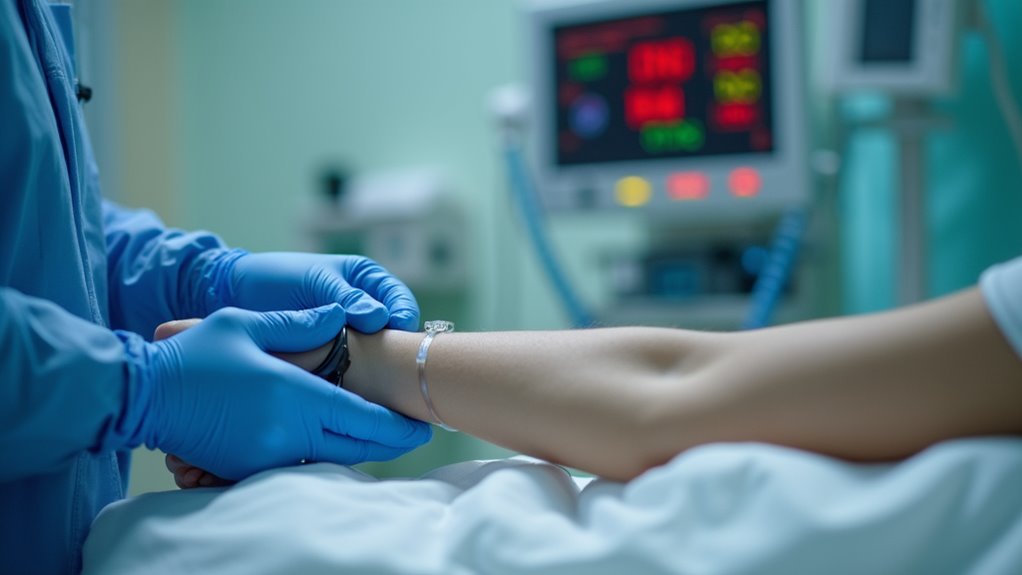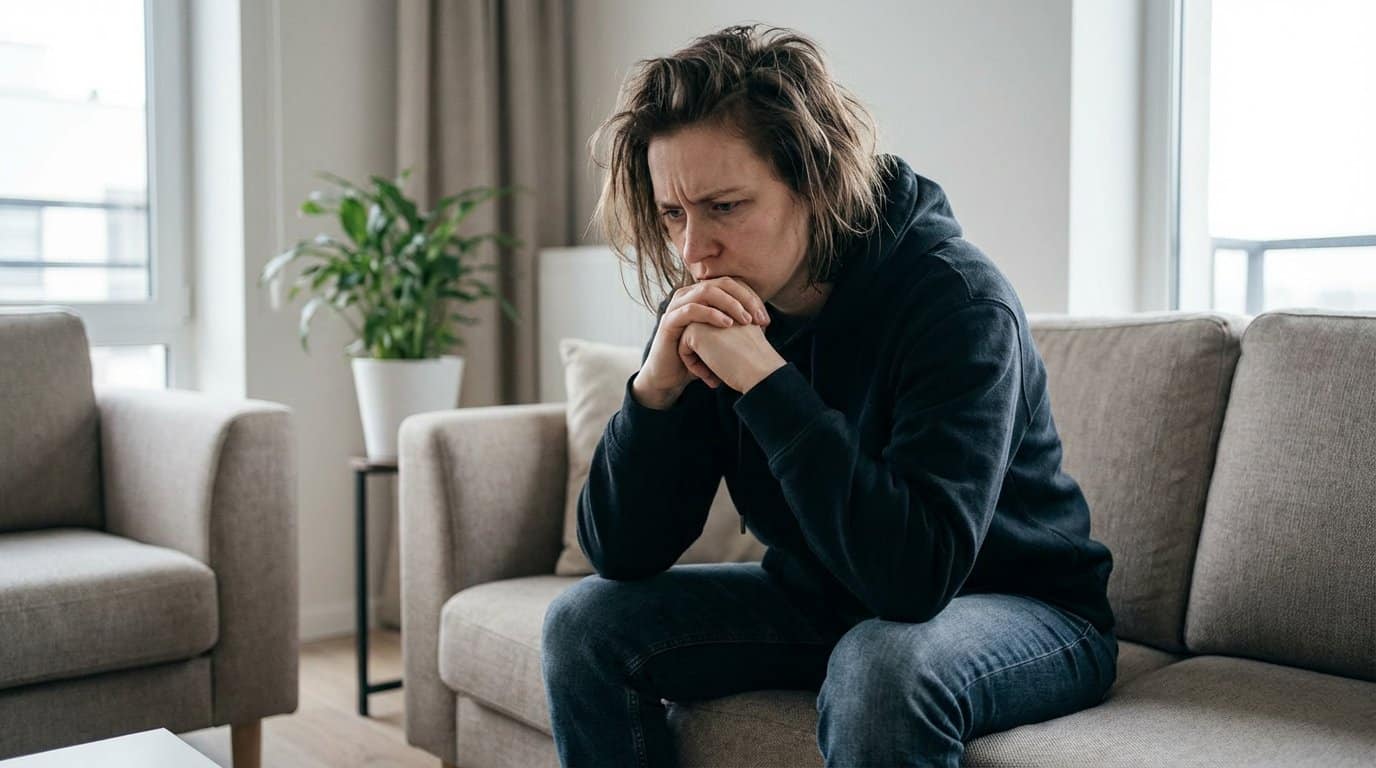Medical detox, or medically managed withdrawal, is considered the first step in treatment and recovery from addiction.
In the United States, attitudes about addiction are changing. Until recently, “getting clean” involved suffering through withdrawals and was seen as a kind of tough love and a necessary part of quitting substances.
As science and medicine evolved, they recognized addiction as a complex disease that requires the same care and treatment any illness receives.
Detox is the first step of treatment and is possible to do comfortably, safely, and with dignity and help.
Detox is a treatment process that happens under medical supervision to treat withdrawals from prescription drug addiction, alcohol addiction, or other illicit drug addictions.
According to the National Institute on Drug Abuse (NIDA), detox can reduce risks surrounding drug and alcohol withdrawals. Still, it is a short-term, medically supervised treatment process that doesn’t address addiction’s social, mental, or behavioral health aspects.
What Is Medical Detox?
Medical detox refers to removing all addictive substances from your body under the supervision of medical professionals.
Detox typically happens in medical detox centers that offer medical care, privacy, and comfort, not hospitals.
The National Institute of Health (NIH) has three essential steps for medical detoxification to manage severe intoxication and withdrawal.
People who undergo all three steps significantly increase their chances of staying sober and avoiding the need for a medical detox program in the future.
The three steps are:
- Evaluation includes measuring the levels of substances in the body and screening for co-occurring conditions, both medical and psychological. This evaluation helps professionals lay out a post-detox treatment plan tailored to the patient.
- Stabilization involves letting the patient know what to expect during and after withdrawal, then helping them reach a medically stable, supported, substance-free condition. This stage is when relief medications and other techniques to keep the patient comfortable come into play.
- Fostering a patient’s entry into treatment is arguably the most critical stage, especially for people with a history of going through detox but not following through with treatment afterward. Health care providers should clearly explain all the details and plans for treatment to the patient to help them anticipate and participate in their upcoming treatment.
Medical detox is not a magic cure that skips withdrawal entirely. Still, it does reduce cravings and provides a comfortable and safe environment to help reduce the dangers and discomforts of withdrawal.
Withdrawal, especially alcohol withdrawal, can be very uncomfortable and sometimes even life-threatening. Medical experts and nursing care available 24-hours a day to monitor and assist with the unknown and unpleasant parts can make the experience more comfortable, safer, and more likely to succeed.
Your medical team will monitor physical and psychological comfort levels and provide the appropriate medications and other techniques as they are needed.
Once your system is free of addictive substances, your care team will establish your mental and physical health “baselines” or normal levels without the presence of drugs or alcohol. Knowing what your body and mind are like without drugs or alcohol will help measure your progress as you transition into a treatment program.

When Is Medical Detox Necessary?
People who have become physically or psychologically dependent on alcohol or drugs and risk severe withdrawal are candidates for medical detoxification. Individuals who have been diagnosed with substance use disorders most likely need medical detox.
Doctors and treatment centers will evaluate patients individually to determine if medical detox is needed and to what degree.
Some people will try to stop using on their own and go “cold turkey”; this can be dangerous, especially with alcohol withdrawal which can lead to delirium tremens, seizures, and heart attacks.
The cold turkey method can also lead to intense, very uncomfortable withdrawal side effects all at once, whereas medically assisted withdrawal can lessen them. Many people who attempt to quit on their own find it too difficult and return to using.
Some ways to know you’ve developed a psychological or physical dependence on a substance include:
- Craving or “jonesing” for a substance when you can’t get it
- Using a substance regularly
- Using the same substance over long periods
- Needing more significant amounts of a drug to get the desired effect
- Inability to stop using on your own
- Having been diagnosed with alcohol withdrawal syndrome in the past
What to Expect During Medically Supervised Detox
Medically supervised detox will be different for every person. Based on what you are addicted to, how long you have been using, and other physical and mental factors, doctors will put together a treatment plan that takes everything into account.
Things that are most important to expect during medically supervised detox include:
- Meeting the doctors and nursing staff that will be taking care of you
- Understanding what medications you’ll be taking and why
- Understanding what therapies or other methods are going to be used to make you comfortable during withdrawal
- Knowing what the next steps are after you complete detox
Understanding the process in detail can help reduce the anxiety many people have around treatment and withdrawal. Never be afraid to ask questions.

How Long Does Medical Detox Last?
There is no set time frame for how long medical detox will last. Much like every other aspect of substance abuse treatment, a lot depends on the individual.
Detox can be required anywhere from a couple of days to weeks based on doctors’ recommendations and the progress they see in the first few days of medical detox.
Some factors that affect how long medical detox lasts include:
- Physical makeup and body chemistry
- Medical conditions
- Mental health conditions
- Type of addiction
- Length of addiction
- Response to treatment
What Medications Are Used in Detox?
There is no medication to help the body get rid of substances faster than usual; instead, medications used in detox treat the side effects of withdrawal and reduce cravings.
The different medications used in medical detox are given based on what the addiction is. Doctors might start you on medications to treat any mental health conditions as well.
The following are types of medications used in medical detox and a brief description of what they are prescribed for:
- Benzodiazepine (Diazepam, Lorazepam), an alcohol detox medication to prevent delirium tremens and help with sleep and anxiety
- Methadone (Methadose, Metadon, Metadol), used for medical detox from opiates to help lessen side effects and drug cravings
- Buprenorphine (Suboxone, Subutex), used to ease opioid withdrawal symptoms and reduce drug cravings
- Anticonvulsants (Klonopin, Chlormethiazole, Gabapentin), used for alcohol and benzodiazepine withdrawal to prevent seizures and are sometimes used as mood stabilizers for bipolar disorder
- Antipsychotics (Seroquel, Abilify), used for alcohol withdrawal and a common crystal meth detox medication to reduce hallucinations and symptoms of psychosis
- Antidepressants (Lexapro, Prozac, Paxil), used to treat depression and co-occurring disorders in people going through drug detox

Is Medical Detox Safe?
Medical detox is very safe, much safer than going cold turkey or attempting to detox at home.
Withdrawal symptoms can be unpredictable and dangerous; 24-hour nursing care in case a medical emergency happens and to help with comfort during withdrawal is one of the safest ways to detox.
What Are the Next Steps After Detox?
Detox only addresses the immediate physical withdrawal from drugs or alcohol and should always be followed by a treatment plan designed to treat the underlying causes of addiction.
NIH studies show people who don’t receive any treatment after detox often go back to using and get stuck in a cycle of detoxing and using, called the “revolving door” phenomenon.
Additionally, according to the U.S. Department of Health and Human Services (HHS), medical detox cannot be successful unless integrated into residential treatment or continuous outpatient addiction treatment.
At Northridge Addiction Treatment Center, we know medical detox is just the first step to treatment and can be the most difficult. That is why we offer comfortable medical detox on-site surrounded by caring medical professionals, creating an individualized treatment plan as soon as you walk through our doors so you can smoothly transition to treatment once detox is complete.
Medical Detox in Los Angeles
Struggling alone and being uncomfortable is not a sign of strength. Seeking addiction treatment is brave and can be one of the scariest things a person can do.
Northridge Addiction Treatment Center knows that facing the painful parts of withdrawal can be intimidating. We offer on-site medical detox in Northridge, California, administered by our licensed and caring doctors and nurses.
In the San Fernando Valley of Los Angeles, NATC gives you privacy, peace, and safety to start your long-term recovery journey and healing in our residential treatment facility.
Once we get you through the physical part of withdrawal, our licensed and compassionate counselors collaborate with you on a customized treatment plan to address the roots of your substance use disorder.
At NATC, we use evidence-based treatments and therapies to help you heal and develop the skills to navigate your new lease on life once you finish treatment.
We know that taking the first step can be overwhelming, and worrying about how to afford treatment can cause even more stress. Our confidential insurance verification form can check your insurance benefits, and our experts will reach out to see if your treatment can be covered entirely by your insurance.
We are happy to answer any questions you might have about your treatment options. We are eager to get you started on the road to recovery with our team at NATC by your side every step of the way.
Call us now to speak to our admission specialists.




